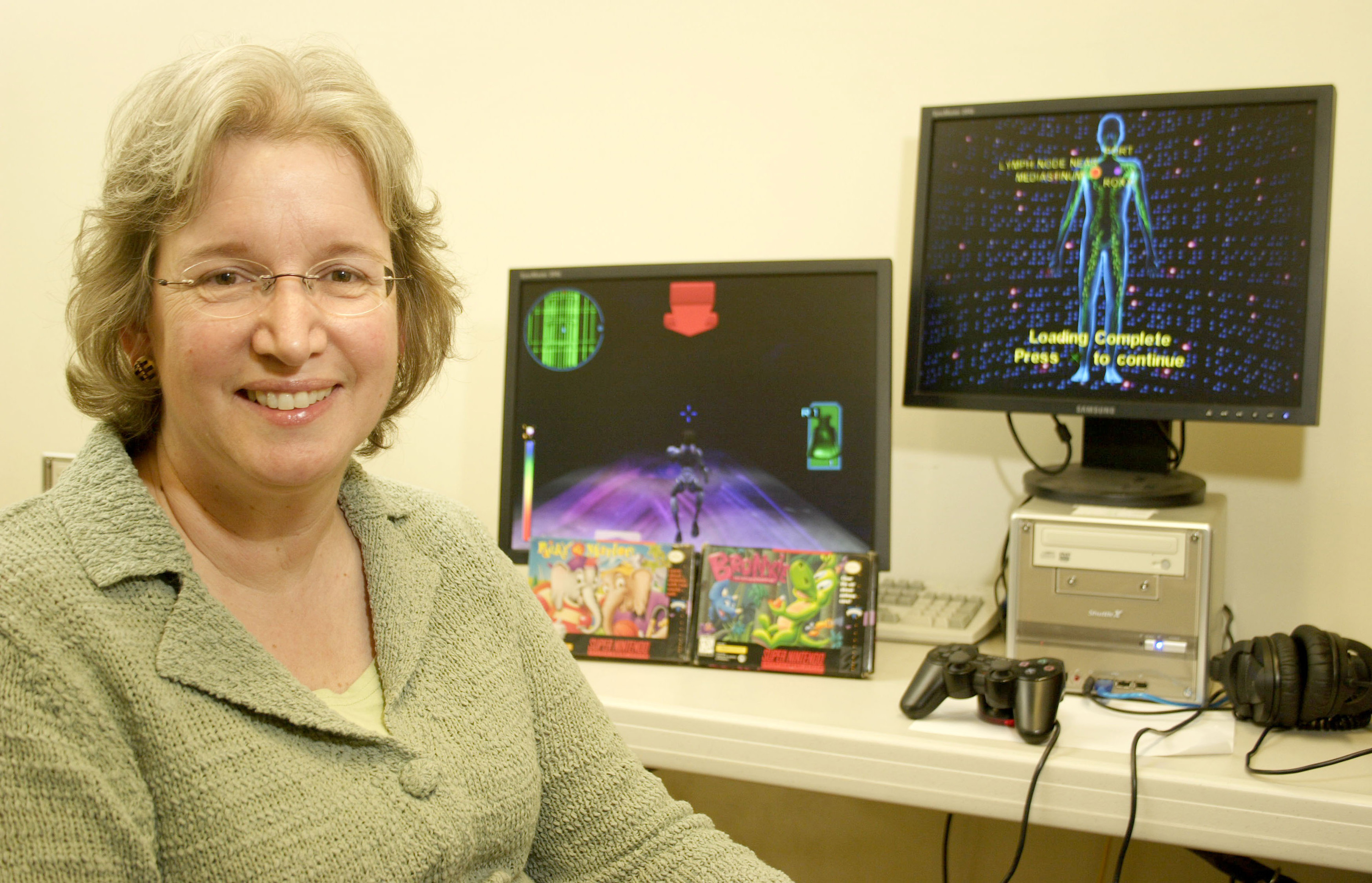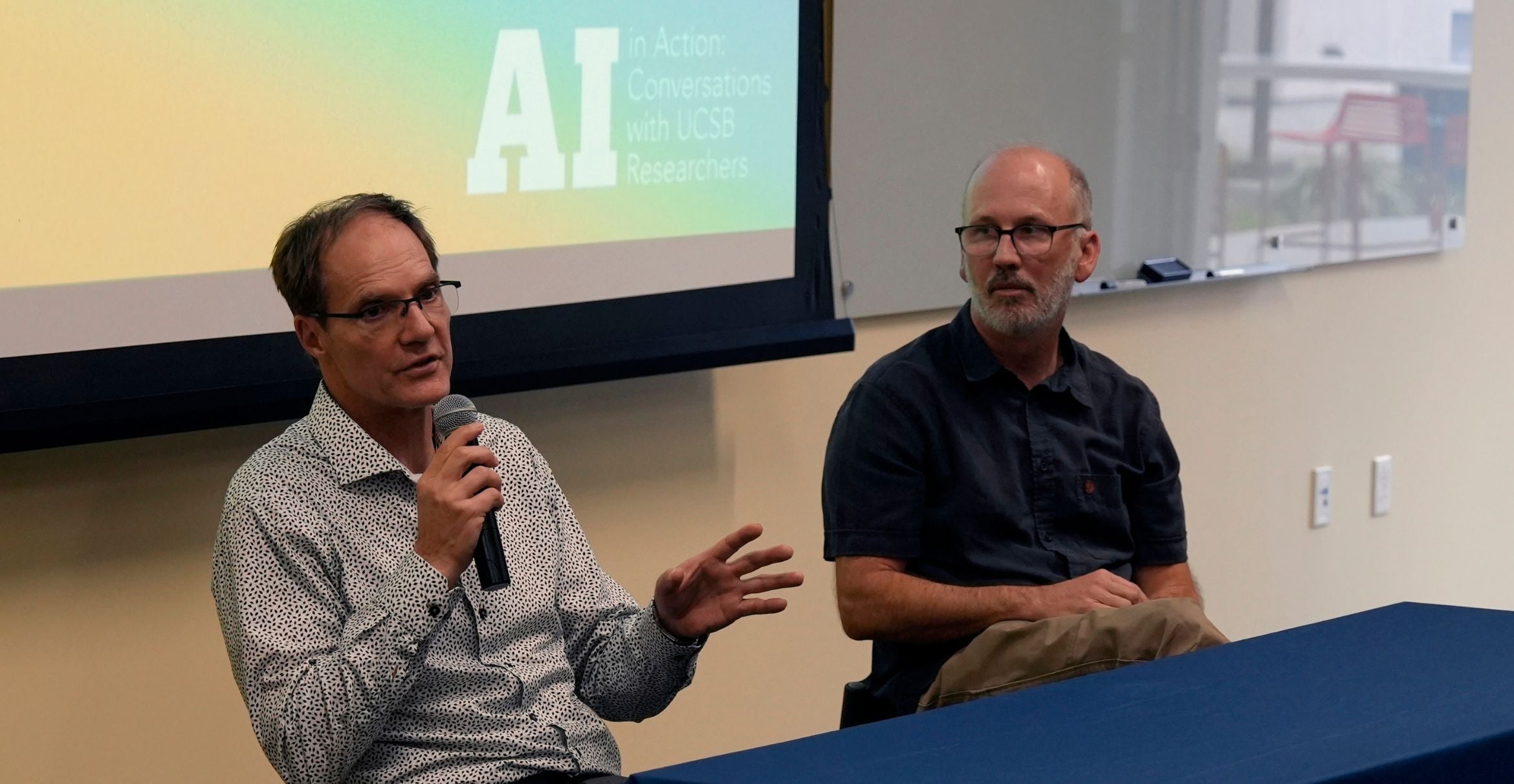
Contrary to what many people believe, spending time in front of a Play Station or a computer could actually be good for you. It all depends on what games you choose to play.
In a talk titled "Ten Ways Video Games Can Improve Our Health," Debra Lieberman, a communication researcher at UC Santa Barbara's Institute for Social, Behavioral, and Economic Research, will present 10 features of video game design that are known to improve health-related learning, skills, behaviors, and outcomes. Using examples of successful health games, she will share insights into what makes them such powerful tools for learning and behavioral change.
Lieberman's talk begins at 4 p.m. on Thursday, April 15, in the Harbor Room at the campus's University Center. Sponsored by UCSB's Carsey-Wolf Center for Film, Television and New Media, it is free and open to the public.
Lieberman is also director of Health Games Research, a national program headquartered at UCSB and supported by a grant from the Robert Wood Johnson Foundation. The mission of the Health Games Research program is to support research that will discover theory-driven, evidence-based strategies for designing games and game technologies that will promote and improve players' health behaviors and health outcomes.
The program has awarded approximately $4 million to 21 projects across the United States, all conducting research on health games designed to increase players' physical activity and/or to improve their lifestyle behaviors and self-care.
"Many people assume that health games are meant to improve health knowledge and nothing more, but that's only a small part of what a health game can do," said Lieberman, who is also a lecturer in UCSB's Department of Communication. "When well-designed, games provide interactive experiences that can significantly change players' health behaviors."
Some games, such as those in the Wii Fit collection, or the dance pad game Dance Dance Revolution, are designed to get people off the couch and moving. These "exergames" provide a fun –– and easily accessible –– means of physical exercise. "They're great for getting the heart rate up, developing flexibility and strength, or improving balance and coordination," Lieberman noted.
In addition, these games have a high motivation factor because players strive to win. Physical therapists have discovered that their patients will work longer and harder when they are doing their therapy in the context of a game such as on the Wii Fit balance board or with Wii Sports games. "There's even a new term for this –– ‘Wii-habilitation,'" she added.
Other health games help players develop the skills and self-confidence to manage their own health problems. For example, teens with diabetes who had access to the diabetes self-management game Packy & Marlon at home for a three-month period, decreased their diabetes-related emergency room and urgent care visits by 77 percent, according to Lieberman, who helped design the action-adventure Nintendo platform game in the early 1990's. A control group of diabetic teens who played an entertainment game that had no health content, showed no decrease. "Packy & Marlon was designed to help remove the stigma of being different so young people with diabetes who played the game with their friends, and saw that their friends did not consider diabetes to be a big issue, would be more willing to do important self-care throughout the day, even when their friends were around. And this is what actually happened," Lieberman said.
Health games are multifaceted, and that is a key to their value in wellness. New game technologies and genres now offer a growing array of options, such as the incorporation of mobile technologies and global positioning systems to help players navigate in the outdoors to play games. "It is important that research be done in this field to help design the next generation of health games in ways that are compelling, engaging, and beneficial," said Lieberman. "UCSB is making valuable contributions to this body of research and, through the leadership of the Health Games Research national program, is helping to shape and build this fascinating and important field."



